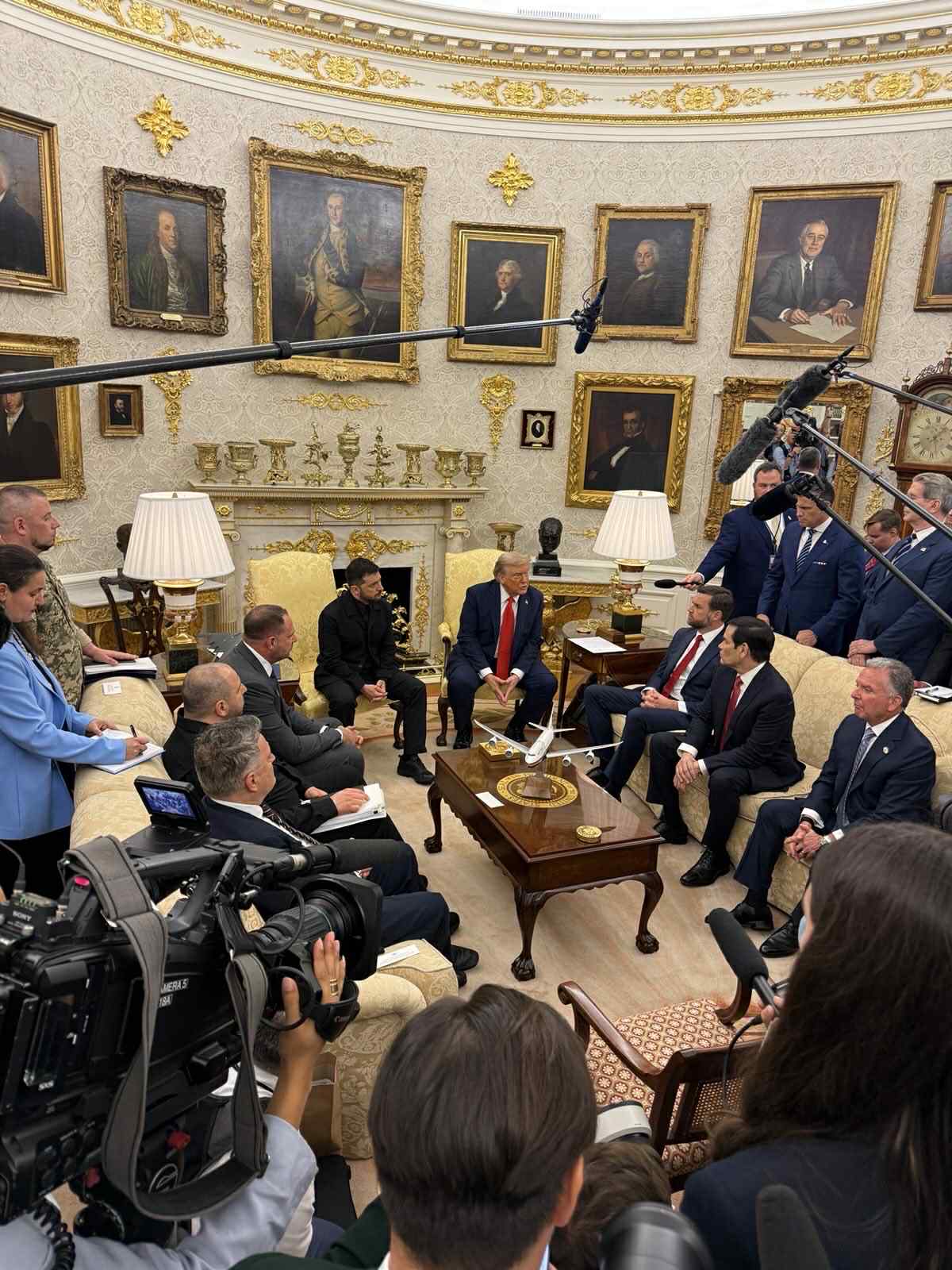A few words about guarantees “just like in NATO” according to the design of Article 5 (as actively promoted, for example, by Italian Prime Minister Giorgia Meloni).
There is one problem with them: until the Budapest Memorandum was grossly (and in fact without any consequences) violated, few doubted that it would work.
Now the Baltic states — Russia's next obvious target — are looking at Trump and seriously doubting that Article 5 of NATO works the same for everyone. That is, when the United States needed NATO because their own passenger planes were flying into skyscrapers and so on, their allies did not refuse. But that was the first and last time Article 5 worked.
Now Russian drones and missile remnants are systematically flying into the territory of Ukraine's neighbors, and no one is bothered by the pain of these neighboring states, because they are unintentional.
The problem I am writing about is that the lack of determination to respond to the aggressor proportionally negates any guarantees written on paper. The main guarantor of this determination under the existing security architecture of Western democracy was the United States. The key word in the previous sentence is “was.”
One of my quiet depressive episodes in 2023 was triggered by a trip to Seoul and from there to the DMZ, the demilitarized zone, the border between the two Koreas. It was May, we were actively discussing an offensive counterattack, we were unbreakable, the most unbreakable in the world, and history hinted that it wouldn't be long before we found ourselves in the situation we are in now. This is a problem of power, a problem of journalists, a problem of marathons, a problem of wartime — I don't know of any country whose media, in a state of war, did not fall into a state of rejecting objective reality in favor of the desired outcome. BBC standards don't even work for the BBC when it comes to the British in Afghanistan, for example. To a certain (large) extent, we are talking about self-censorship here. The example of South Korea is telling: fighting for it (even though a major war was very close) was officially endorsed by the UN (there was a time when this organization meant something). The United States, Great Britain, France, the Netherlands, Belgium, Turkey, Greece, the Philippines, Thailand, Luxembourg, and so on fought for South Korea for three years. Seoul changed hands four times. The UN forces were opposed by the Chinese, and Beijing demonstrated that it was willing to sacrifice Chinese lives to achieve its goals. The Chinese had only mortars, handguns, and machine guns to fight the planes. And grenades. The Chinese attacked at night, choosing a small unit, overwhelming it with numbers, moving on to the next small group, and repeating the process.
Ultimately, with Stalin's death and the loss of Soviet support, everything ended where it began: at the 38th parallel, the dividing line between the American and Soviet protectorates, delineated after the overthrow of the Japanese occupation.
South Korea refused to sign a peace agreement, but few were concerned: the United States ended the war on behalf of the UN forces in 1953. Since then, numerous attempts to return to peace talks have failed for one reason or another, and North Korea has frozen its citizens in rusty totalitarian feudalism, from which it is a great fortune to escape to work for the Russians (or to fight on Ukrainian soil).
Next to me on the bus on the way to the DMZ sat an American woman from the Midwest — the central part of the United States — who was very sympathetic to Ukraine. We don't talk about politics with our neighbors, she said: all our neighbors are Republicans.
This was a year and a half before they re-elected Donald Trump as president — both those who voted for him and those who didn't care either way. This explains the radical shift in rhetoric toward Trump by all of America's Western partners: the conscious, second democratic choice of the country with the largest army in the world must be treated with understanding. Even if this understanding turns into such undisguised, sometimes almost pathetic flattery. Europe has long outsourced its security, handing it over to the United States, saving money on it just as it saved on energy resources by buying cheap gas and oil from Russia. It is very expensive and very time-consuming to reconfigure. This is already being done, right now — but in the absence of another defense system, efforts must be made to save the existing one from crisis.
Each of the European leaders, who in turn received compliments from Donald Trump, some dubious, some sincere, thanked the American president for his incredible efforts in the peace process between Russia and Ukraine, soberly understanding that Putin will not stop at Ukraine. However, none of the countries that will be hit hardest by this were present at the White House negotiations.

“No unacceptable decisions were made,” Zelensky said after the meeting. At the same time, he admitted that he had refused to insist on a truce until a possible bilateral meeting with Putin or a trilateral meeting with Putin and Trump (I am writing this column under a ballistic alert, by the way) because “if Ukraine sets conditions, the Russians will set a hundred conditions.” Therefore, demonstrating its desire for peace, Ukraine is currently expressing its unconditional readiness to talk — in any format. And to wait: because Putin can only be stopped by pressure or force, and without the United States, there is not enough pressure or force to exert on him.
The problem, as mentioned above, is not the format. The problem is that the destruction of the foundations of the world order, to which we have all become accustomed, leaves no room for guarantees of stable peace. Neither for Ukraine. Nor for anyone else.
But Trump seems to even like it.